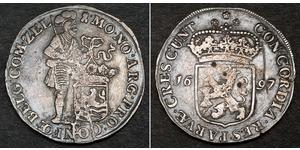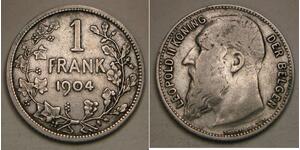(Vendida por $9.0)
1794, Great Britain, Manchester. Grocer & Tea Dealer Halfpenny Token. VF
Condition: VF
Mint year: 1793
References: DH-131.
Region: Manchester (England)
Denomination: Penny Trade Token
Company (Trader): Fieldings (Grocer & Tea Dealer)
Diameter: 29.1mm
Material: Copper
Weight: 10gm
Obverse: Bale mark of the British East India Coompany.
Legend: PAYABLE AT INo. FIELDINGS GROCER & TEA DEALER *
Reverse: Coat-of-arms of the Tea Dealer & Grocer.
Legend: MANCHESTER PROMISSORY HALFPENNY 1793
The East India Company (EIC), originally chartered as the Governor and Company of Merchants of London trading into the East Indies, and more properly called the Honourable East India Company (HEIC), was an English, and later (from 1707) British joint-stock company, formed to pursue trade with the East Indies but that ended up trading mainly with the Indian subcontinent, Qing Dynasty China, North-West Frontier Province and Balochistan. The company rose to account for half of the world's trade, particularly trade in basic commodities that included cotton, silk, indigo dye, salt, saltpetre, tea and opium. The company also ruled the beginnings of the British Empire in India.
The company received a Royal Charter from Queen Elizabeth in 1600, making it the oldest among several similarly formed European East India Companies. Wealthy merchants and aristocrats owned the Company's shares. The government owned no shares and had only indirect control. The company eventually came to rule large areas of India with its own private armies, exercising military power and assuming administrative functions.[6] Company rule in India effectively began in 1757 after the Battle of Plassey and lasted until 1858 when, following the Indian Rebellion of 1857, the Government of India Act 1858 led to the British Crown to assume direct control of India in the new British Raj.
The company was dissolved in 1874 as a result of the East India Stock Dividend Redemption Act passed one year earlier, as the Government of India Act had by then rendered it vestigial, powerless, and obsolete. The official government machinery of British India had assumed its governmental functions and absorbed its presidency armies.
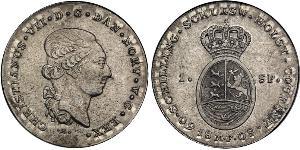
1 Daler / 1 Speciedaler Reino de Dinamar ...
grupo tiene 20 monedas / 17 precios
Add coin to this group
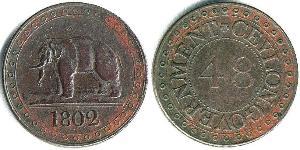
1 Stiver Sri Lanka / Reino de Gran Breta ...
grupo tiene 7 monedas / 5 precios
Add coin to this group
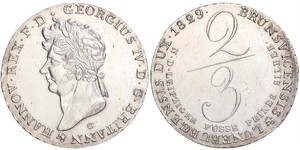
2/3 Thaler Reino de Hannover (1814 - 186 ...
grupo tiene 27 monedas / 27 precios
Add coin to this group

1 Rublo Imperio ruso (1720-1917) Plata P ...
grupo tiene 8 monedas / 4 precios
Add coin to this group

1 Daler / 1 Speciedaler Noruega Plata Cr ...
grupo tiene 6 monedas / 6 precios
Add coin to this group

1 Farthing Isla de Man Cobre Victoria (1 ...
grupo tiene 5 monedas / 5 precios
Add coin to this group
1 Ducat Provincias Unidas de los Países Bajos (1581 - 1795) ...
grupo tiene 10 monedas / 9 precios
⇑
1 Franc Bélgica Plata Leopold II (1835 - 1909)
grupo tiene 15 monedas / 14 precios
⇑

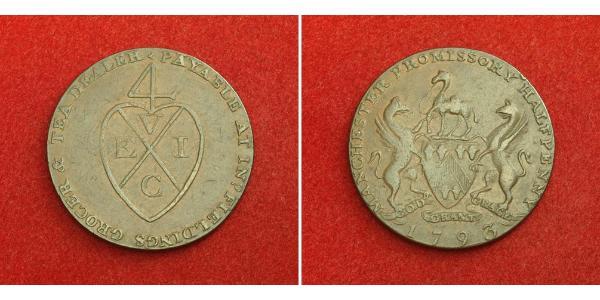






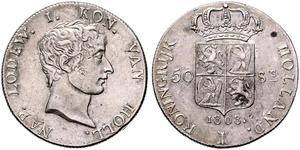

-300-150-nf4K.GJAcbQAAAEu7g61Lgu3.jpg)
